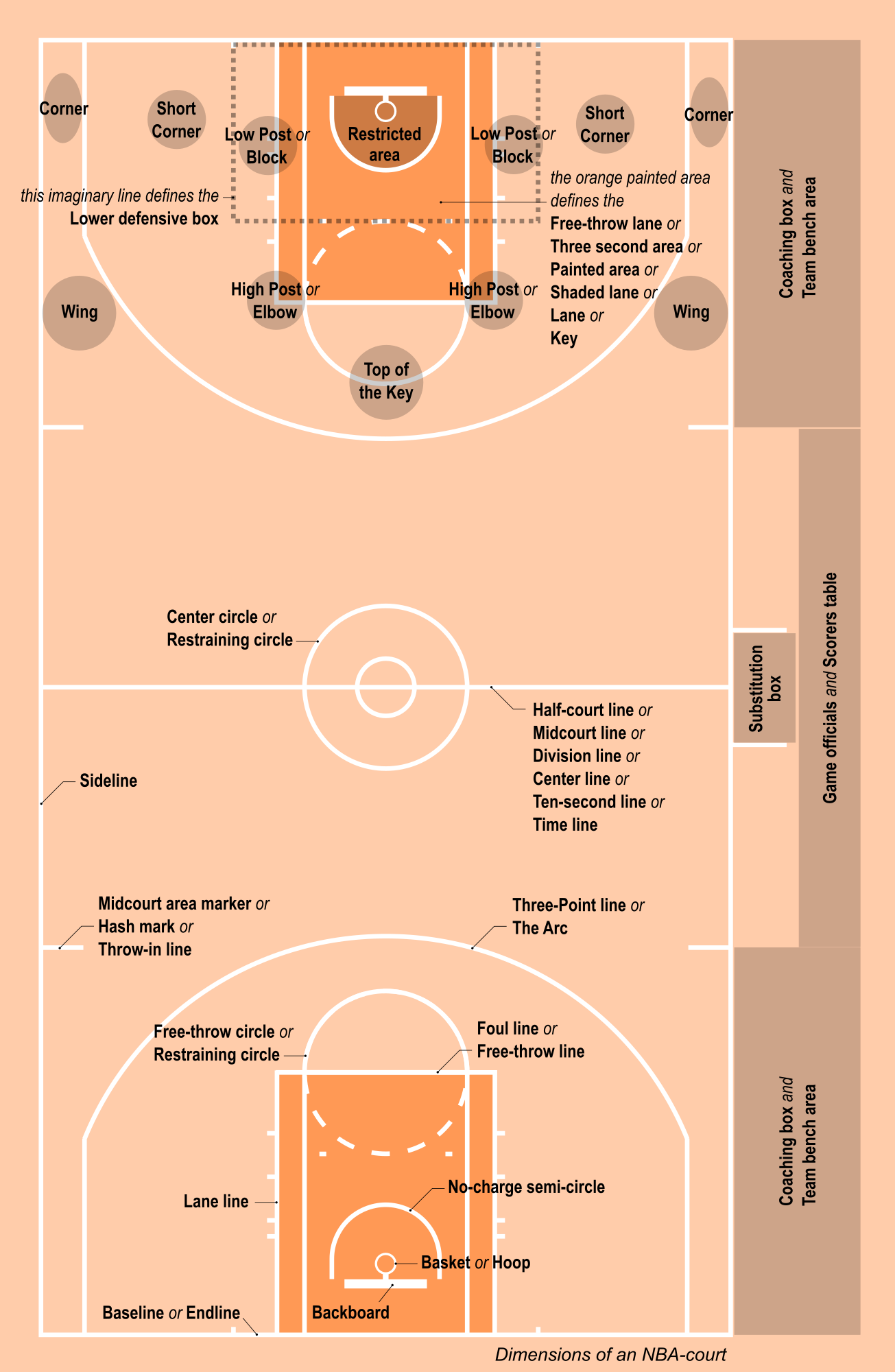three seconds rule on:
[Wikipedia]
[Google]
[Amazon]
 The three seconds rule (also referred to as the three-second rule or three in the key, often termed as
The three seconds rule (also referred to as the three-second rule or three in the key, often termed as
 The three seconds rule (also referred to as the three-second rule or three in the key, often termed as
The three seconds rule (also referred to as the three-second rule or three in the key, often termed as lane
In road transport, a lane is part of a roadway that is designated to be used by a single line of vehicles to control and guide drivers and reduce traffic conflicts. Most public roads (highways) have at least two lanes, one for traffic in eac ...
violation) requires that in basketball
Basketball is a team sport in which two teams, most commonly of five players each, opposing one another on a rectangular Basketball court, court, compete with the primary objective of #Shooting, shooting a basketball (ball), basketball (appro ...
, a player shall not remain in their opponent’s foul lane for more than three consecutive seconds while that player's team is in control of a live ball in the frontcourt and the game clock is running. The countdown starts when one foot enters the restricted area and resets when both feet leave the area.Rule 5 (Violations), Article 26.
The three-second rule was introduced in 1936 and was expressed as such: no offensive player, with or without the ball, could remain in the key, for three seconds or more.
The three-second rule came about in part following a game at Madison Square Garden
Madison Square Garden, colloquially known as the Garden or by its initials MSG, is a multi-purpose indoor arena in New York City. It is located in Midtown Manhattan between Seventh Avenue (Manhattan), Seventh and Eighth Avenue (Manhattan), Eig ...
between the University of Kentucky
The University of Kentucky (UK, UKY, or U of K) is a Public University, public Land-grant University, land-grant research university in Lexington, Kentucky, United States. Founded in 1865 by John Bryan Bowman as the Agricultural and Mechanical ...
(UK) and New York University
New York University (NYU) is a private university, private research university in New York City, New York, United States. Chartered in 1831 by the New York State Legislature, NYU was founded in 1832 by Albert Gallatin as a Nondenominational ...
(NYU) in 1935, won by NYU 23–22. The University of Kentucky team did not take their own referee
A referee is an official, in a variety of sports and competition, responsible for enforcing the rules of the sport, including sportsmanship decisions such as ejection. The official tasked with this job may be known by a variety of other title ...
, a common practice at the time, despite advice to the UK coach Adolph Rupp
Adolph Frederick Rupp (September 2, 1901 – December 10, 1977) was an American college basketball coach. Nicknamed the "Baron of the Bluegrass", he coached the University of Kentucky Wildcats to four NCAA Division I men's basketball tournam ...
from Notre Dame coach George Keogan, who had lost to NYU the week prior and who warned Rupp of the discrepancies in officiating between the Midwest and the East. UK was unable to run its normal offense (which consisted of using screens) without being called for a foul. NYU's Irving Terjesen and Irwin Klein combined to guard one of UK's major players, Leroy Edwards, keeping him to a mere 6 points (the lowest output of his career). The ''New York Post
The ''New York Post'' (''NY Post'') is an American Conservatism in the United States, conservative
daily Tabloid (newspaper format), tabloid newspaper published in New York City. The ''Post'' also operates three online sites: NYPost. ...
'' reacted with alarm: "The score says that NYU is the best college basketball team in the country and that the East still is supreme. But if Frank Lane, the referee from the Midwest, had worked the game, it's safe to assume big Leroy Edwards would have been given a fantastic number of foul shots. Minor mayhem was committed on the person of Edwards by Terjesen and Klein. Something will have to be done or the game will become entirely too rough."
Within the FIBA
The International Basketball Federation (FIBA ; French language, French: ) is an association of national organizations which governs the sport of basketball worldwide. FIBA defines the rules of basketball, specifies the Basketball equipment ...
rules, an allowance is made for players who either receive the ball prior to being within the key for 3 seconds, or for those players who are leaving (or attempting to leave) the keyway.
See also
* Defensive three-second violation * Key (basketball) * Five-second ruleReferences
Rules of basketball 1936 introductions {{Basketball-stub Basketball terminology